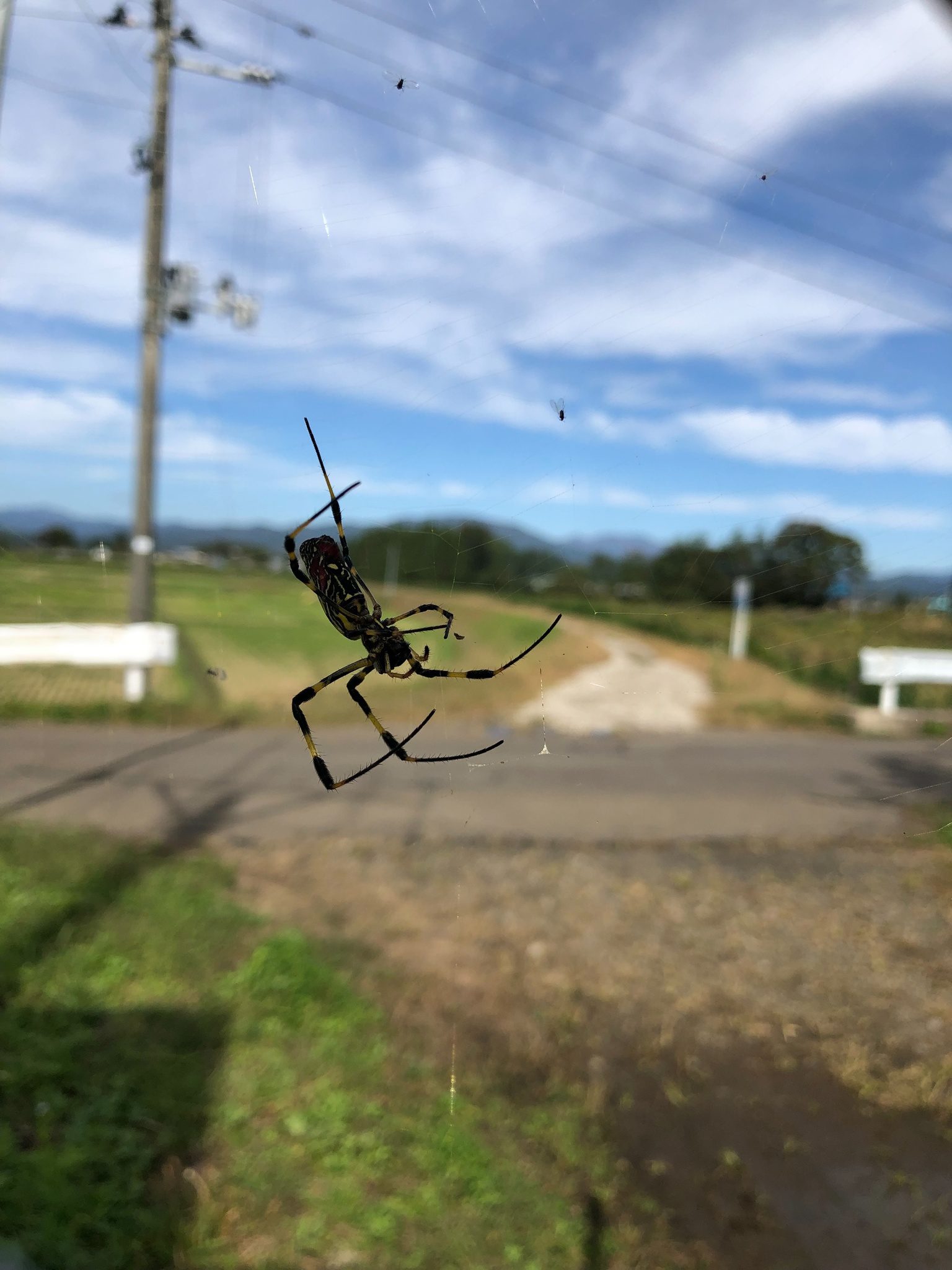There’s no two ways about it: jorō spiders look pretty scary. Even if you’re not a confirmed arachnophobe, the sight of this brightly colored beastie with its leg span of up to 10 centimeters (4 inches) would be enough to send shivers up the spine. But what if we told you that these guys are actually some of the most timid spiders we’ve ever encountered?
The orb-weaving jorō spider (Trichonephila clavata) is a relatively recent introduction to the ecosystems of the United States, having most likely been transported there accidentally from its native Asia via shipping containers or potted plants. Since first being spotted in Georgia in 2014, they’re known to have spread to Alabama, North and South Carolina, and Tennessee.
Their ability to thrive and spread throughout this new habitat caught the attention of scientists at the University of Georgia, who wanted to figure out how they’re beating the competition.
“One of the ways that people think this spider could be affecting other species is that it’s aggressive and out-competing all the other native spiders,” said research scientist and study lead Andy Davis in a statement. “So we wanted to get to know the personality of these spiders and see if they’re capable of being that aggressive.”
The team collected 16 wild female jorō spiders for their experiments. Spiders have a common stress response called thanatosis, whereby they freeze for a period of time when exposed to a threat. To test this response in the jorō spiders, the researchers used a turkey baster to blow gentle puffs of air onto each individual in turn. The experiment was repeated using over 30 wild-caught specimens of garden spiders, banded garden spiders, and marbled orb-weavers.
To corroborate their experimental findings, the team also looked at previously published data on the stress responses of 389 further individual spiders, including five additional species. What they discovered painted a very different picture of the jorō spider than they had first suspected.
In most spiders, thanatosis is short-lived response, and they begin moving again after a minute and a half on average. The reticent jorōs, however, stayed completely still for over an hour after their turkey baster treatment. The only spider that is known to have a similarly long response is the golden silk spider, also a member of the Trichonephila genus.
Less an aggressive invader, then, and more a gentle giant. “Most people think ‘invasive’ and ‘aggressive’ are synonymous,” said undergraduate researcher and study co-author Amitesh Anerao. “People were freaking out about the jorō spiders at first, but maybe this paper can help calm people down.”
The researchers think the jorōs’ unassuming nature might be how they cope in the lively urban environments they like to colonize – places other spiders don’t tend to go. Webs can often be seen at gas stations or on power lines, and their extended freezing responses might help the jorō spiders conserve energy in these startling surrounds.

It’s not unusual to find jorō spiders weaving their webs near power lines.
And as for their impressive population growth? Maybe they’re just more efficient breeders.
“One thing this paper tells me is that the jorōs’ rapid spread must be because of their incredible reproductive potential,” Davis explained. “They’re simply outbreeding everybody else. It’s not because they’re displacing native spiders or kicking them out of their own webs.”
So, if you see a jorō in the wild, know that it truly is more scared of you than you are of it. They’ve become so adept at getting along with their noisy human neighbors, in fact, that they’re likely to become a permanent fixture.
As Anerao says, “They’re so good at living with humans that they’re probably not going away anytime soon.”
The study is published in the journal Arthropoda.
Source Link: These Enormous Spiders Might Be The Shyest We’ve Ever Seen